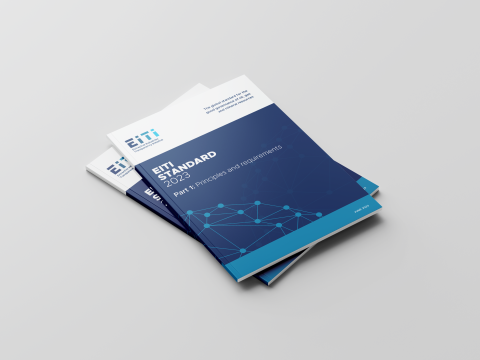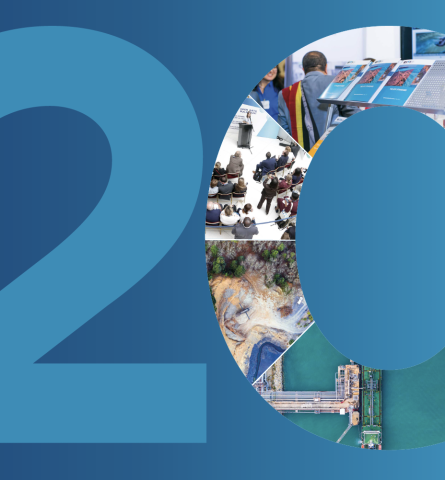
Better together: Supporting due diligence and transparency in the ASM sector in the Sahel
Louis Maréchal, Policy Advisor at the OECD's Responsible Business Conduct Unit, explains how the EITI and OECD can combine their frameworks, tools and resources to improve the governance of artisanal and small-scale mining in West Africa.
Over recent years, the artisanal and small-scale mining (ASM) sector has received unprecedented levels of interest – from producing governments, to consumer-facing companies sourcing components globally, to international NGOs calling for responsible sourcing of minerals used in batteries and electric vehicles.
And with good reason. Artisanal and small-scale miners supply an increasing share of the world’s production of various commodities, such as construction minerals, precious stones, gold and cobalt. The industry employs an estimated 42.6 million people globally.
To help maximise the contribution of the ASM sector to local economies, the Organisation for Economic Cooperation and Development (OECD) and the Extractive Industries Transparency initiative (EITI) work with actors from producing nations. Since the beginning of 2020, the OECD and the EITI are collaborating closely in Burkina Faso, Mali and Niger, leveraging the OECD’s Due Diligence Guidance for Responsible Supply Chains of Minerals and the EITI Standard to mutually strengthen their initiatives.
Adverse impacts and data gaps
Despite being a fundamental source of livelihoods across the world, the ASM sector remains widely informal. It has been associated with significant adverse impacts, including the financing of armed groups, human rights violations, environmental degradation, financial crimes and gender inequalities. A 2018 OECD study found that the ASM sector contributed an estimated 50% of gold production in Burkina Faso, Mali and Niger, worth over USD 2 billion. The vast majority of production is exported illegally. This results in a huge loss in government revenues, and there are risks it contributes to financing terrorist groups in the Sahel.
To mitigate the negative impacts of ASM and maximise its economic contribution, the OECD and EITI have taken steps to strengthen due diligence and transparency in the sector.
Since 2016, the OECD has been working with the Liptako-Gourma Authority (ALG) to promote the use of its Guidance in the region. Burkina Faso, Mali and Niger have implemented the EITI for over ten years, and all have ASM representatives in their EITI multi-stakeholder groups (MSGs). Burkina Faso and Mali have made significant strides by including data on the ASM sector in their EITI reporting, including on legal frameworks, production, exports and government reforms.
Despite these steps, data collection remains challenging. Yet, it is fundamental to better understand the economic contribution of the ASM sector and support formalisation efforts and reforms.
Better together
There are some clear overlaps in the ASM work undertaken by the OECD and EITI. A new report, commissioned by the OECD, explores how the OECD Guidance and the EITI Standard can work hand in hand in the three West African countries, while also building on ongoing government efforts. The report presents a number of recommendations to strengthen this synergy, namely:
1. Raise awareness among EITI stakeholders
This entails strengthening the exchanges between various groups, platforms and committees currently working towards the implementation of the OECD Guidance and EITI Standard. Further activities involve building awareness of relevant international standards among local actors, in particular how these standards can be used to identify economic, environmental and social risks associated with the ASM sector.
To build local capacity and raise awareness, the OECD has offered to provide training to EITI MSGs in Burkina Faso, Mali and Niger, as well as facilitate dialogue on the representation of ASM actors within EITI MSGs and activities.
2. Strengthen reporting on the revenues from the ASM sector
There is an opportunity to report more in-depth and comprehensive data on the economic impact of ASM-related activities. This would require the active contribution of private sector actors, including large-scale mining companies that hold licenses where artisanal miners operate and companies that purchase minerals.
Based on a recommendation from its 2016 EITI Report, Mali plans to conduct a scoping study on ASM in select mining regions to identify sites, map actors along the value chain and provide production and payments data where possible. The OECD’s expertise and data can support the publication of such a study.
The EITI is also reviewing its Guidance Note on the coverage of ASM under EITI reporting in collaboration with the OECD. The guidance outlines concrete steps that countries can take to improve their reporting on licensing, production and exports, tax payments and environmental and gender impacts. With better data, governments will be better equipped to maximise the sector’s contribution to the economy.
3. Intensify engagement with communities in ASM sites
While challenges linked to COVID-19, security and political instability limit the prospects for in-person activities, the OECD and EITI can join hands to engage communities in ASM sites.
Local engagement activities are vital to promote public debate and participation among community members. For government reforms to be meaningful, communities should be involved in the identification and mitigation of risks related to ASM. The participation of women and women’s groups in these activities is key. Both the OECD and the EITI are committed to initiatives in mineral supply chains that advance gender equality and ensure that due diligence requirements are sensitive to gender issues.
A long-term collaboration
Beyond the ASM sector, the report highlights several opportunities for the OECD and EITI to collaborate further in order to foster integrity and transparency in extractives supply chains. For example, the organisations can work together to strengthen beneficial ownership transparency and information exchanges between downstream and upstream actors.
The commonalities transcend the OECD and EITI’s collaboration. The responsible sourcing requirements of the London Metal Exchange (LME) were launched in 2019, draw on both the OECD Guidance and EITI Standard. The requirements apply to all LME-listed companies, many of which operate in, or source from, West Africa.
Responsible and transparent supply chains are increasingly important in light of recent global shifts. The COVID-19 crisis has curtailed much-needed revenues in many resource-dependent countries. And as the world transitions to cleaner energy, the demand for minerals will continue to grow.
In this context, a common agenda and shared objectives between international initiatives is needed more than ever. Joint OECD-EITI activities in the ASM sector in West Africa should, first and foremost, support sustainable development and livelihoods for the millions of citizens who depend on it.
Further reading:
Photo credit: © Alliance for Responsible Mining





